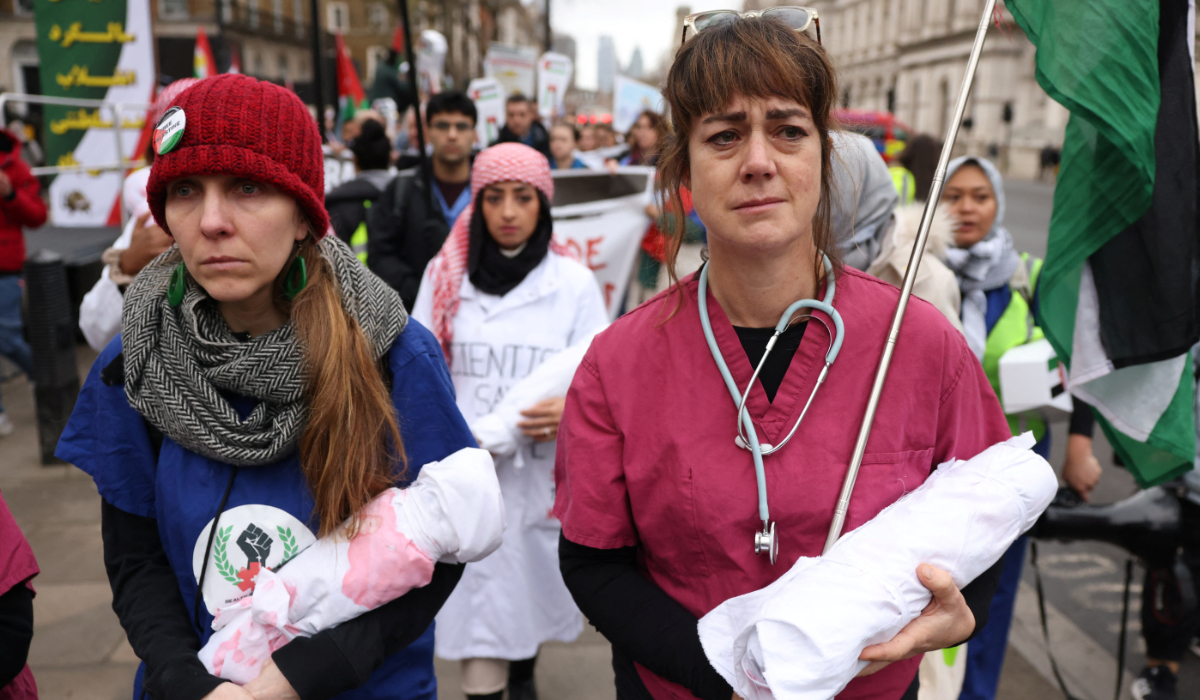TEL AVIV: Israel’s army has deployed some AI-enabled military technology in combat for the first time in Gaza, raising fears about the use of autonomous weapons in modern warfare.
The army has hinted at what the new tech is being used for, with spokesman Daniel Hagari saying last month that Israel’s forces were operating “above and underground simultaneously.”
A senior defense official said the tech was destroying enemy drones and mapping Hamas’s vast tunnel network in Gaza.
New defense technologies including artificial intelligence-powered gunsights and robotic drones form a bright spot in an otherwise dire period for Israel’s tech industry.

Health workers at a vigil for Gaza in London on Saturday. (Reuters)
The sector accounted for 18 percent of GDP in 2022, but the war in Gaza has wreaked havoc with an estimated 8 percent of its workforce called up to fight.
“In general the war in Gaza presents threats, but also opportunities to test emerging technologies in the field,” said Avi Hasson, chief executive of Startup Nation Central, an Israeli tech incubator.
“Both on the battlefield and in the hospitals there are technologies that have been used in this war that have not been used in the past.”
But the rising civilian death toll shows that much greater oversight is needed over the use of new forms of defense tech, Mary Wareham, an arms expert at Human Rights Watch, said.
“Now we’re facing the worst possible situation of death and suffering that we’re seeing today — some of that is being brought about by the new tech,” she said.
More than 150 countries in December backed a UN resolution identifying “serious challenges and concerns” in new military tech, including “artificial intelligence and autonomy in weapons systems.”
Like many other modern conflicts, the war has been shaped by a proliferation of inexpensive unmanned aerial vehicles, also known as drones, which have made attacks from the air easier and cheaper.
Hamas used them to drop explosives during Oct. 7 attacks, while Israel has turned to new tech to shoot them down.
In a first, the army has used an AI-enabled optic sight, made by Israeli startup Smart Shooter, which is attached to weapons such as rifles and machine guns.
“It helps our soldiers to intercept drones because Hamas uses a lot of drones,” said the senior defense official.
“It makes every regular soldier — even a blind soldier — a sniper.”
Another system to neutralize drones involves deploying a friendly drone with a net that it can throw around the enemy craft to neutralize it.
“It’s drone versus drone — we call it Angry Birds,” the official said.
A pillar of Prime Minister Benjamin Netanyahu’s vow to “destroy” Hamas is quickly mapping the underground tunnel network where Israel says the group’s fighters are hiding and holding hostages.

























